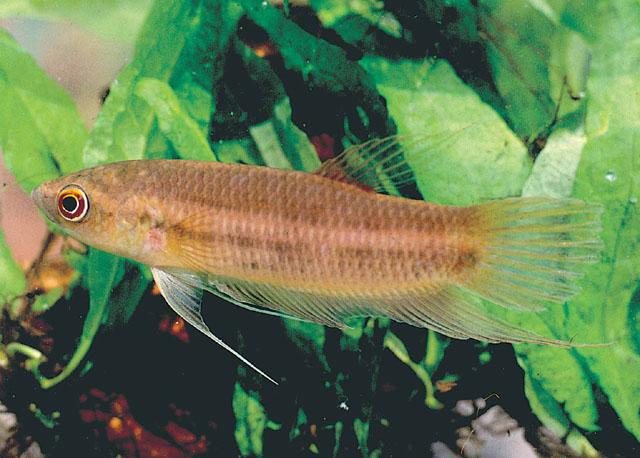| Osphronemidae (Gouramies), subfamily: Macropodusinae |
| 5.86 cm SL (male/unsexed) |
|
benthopelagic; freshwater |
| Asia: Banka, Indonesia. |
|
Dorsal spines (total): 0-1; Dorsal soft rays (total): 8-9; Anal spines: 2-2; Anal soft rays: 27-28. Differs from Betta hipposideros in the following characters: µ-shaped black throat mark (vs. horseshoe-shaped black mark); absence of both dorsal and caudal transverse bars (vs. presence); fewer subdorsal scales (mode 5-6 vs. 6 1/2). Distinguished from Betta renata in the following characters: µ-shaped black throat mark (vs. kidney-shaped); absence of both dorsal and caudal transverse bars (vs. presence); non-spotted opercle (vs. spotted opercle); opercle with yellow lower margin (vs. black margin); fewer subdorsal scales (mode 5-6 vs. 6 1/2). Can be differentiated from Betta spilotogena in the following characters: µ-shaped black throat mark (vs. black median spot); non-spotted opercles (vs. spotted opercle; and an opercle with yellow lower margin (vs. back margin) (Ref. 56386). |
| Occurs in a secondary forest area in a pool among leaf litter. |
|
Critically Endangered (CR); Date assessed: 07 January 2019 (B2ab(iii)) Ref. (130435)
|
| harmless |
Source and more info: www.fishbase.org. For personal, classroom, and other internal use only. Not for publication.

